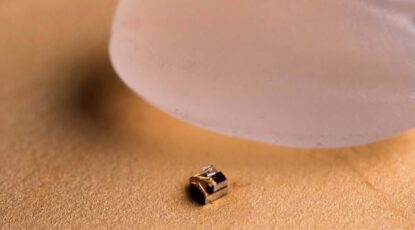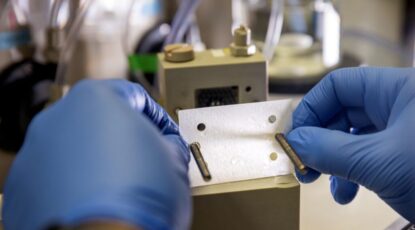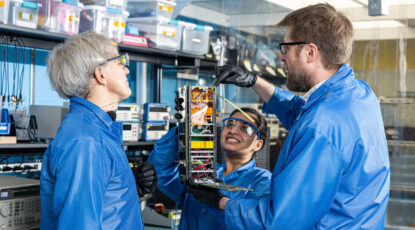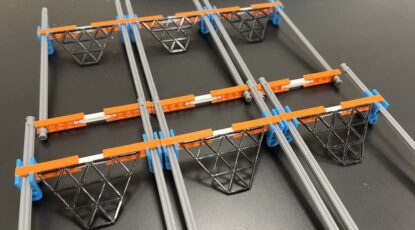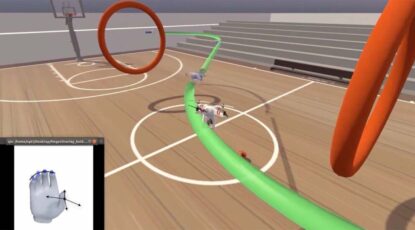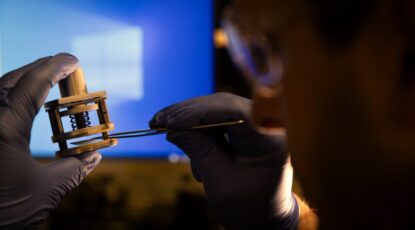Innovation
-
Enabling stroke victims to ‘speak’: $19M toward brain implants to be built at U-M
Marcus Foundation’s $30 million gift supports a collaboration between Stanford and U-M to help stroke victims regain the ability to read, write and speak. The scientists are using the world’s smallest computers linked up to the world’s most biocompatible sensors.
-
Making desalination more eco-friendly: New membranes could help eliminate brine waste
Desalination plants, a major and growing source of freshwater in dry regions, could produce less harmful waste using electricity and new membranes made at the University of Michigan.
-
Why a next-gen semiconductor doesn’t fall to pieces
A new class of semiconductors that can store information in electric fields could enable computers that run on less power, sensors with quantum precision, and the conversion of signals between electrical, optical and acoustic forms. But how they maintained two opposite electric polarizations in the same material was a mystery. Until now.
-
U-M astronomers peer deeper into mysterious Flame Nebula
Using NASA’s James Webb Space Telescope, a team of researchers, including astronomers from the University of Michigan, are closing in on the answer to a looming cosmic question. In probing the Flame Nebula, they’re finding out what’s the smallest celestial body that can form on its own from clouds of gas and dust in space.
-
U-M astronomy will lead its first satellite mission
The project assembles a team of experts from across the country for a mission called STARI — STarlight Acquisition and Reflection toward Interferometry. The goal is to showcase the viability of a new technique for studying exoplanets, or planets outside of our solar system.
-
Not so simple machines: Cracking the code for materials that can learn
It’s easy to think that machine learning is a completely digital phenomenon, made possible by computers and algorithms that can mimic brain-like behaviors. But the first machines were analog and now, a small but growing body of research is showing that mechanical systems are capable of learning, too, say physicists at U-M.
-
‘Unprecedented’ level of control allows person without use of limbs to operate virtual quadcopter
A brain-computer interface, surgically placed in a research participant with paralysis in all four limbs, provided him an unprecedented level of control over a virtual quadcopter — just by thinking about moving his unresponsive fingers. Such groundbreaking technology could impact one’s ability to socialize, work, and enjoy recreational activities.
-
New water purification technology helps turn seawater into drinking water without tons of chemicals
Cutting acid and base treatments from conventional desalination plants could save billions of dollars globally, making seawater a more affordable option for drinking water, say experts at U-M. A study describing the new technology has been published in Nature Water by engineers at Michigan and Rice University.
-
U-M closes on purchase of nearly 2.3 acres in Detroit
In December 2024, U-M closed on a $9.5 million purchase of land at 2201 W. Grand River Ave. from MGM Grand Detroit that is expected to support the future needs of the U-M Center for Innovation. Part of the nearly 2.3-acre parcel, strategically located across the street from the UMCI, will be used for a parking structure.

